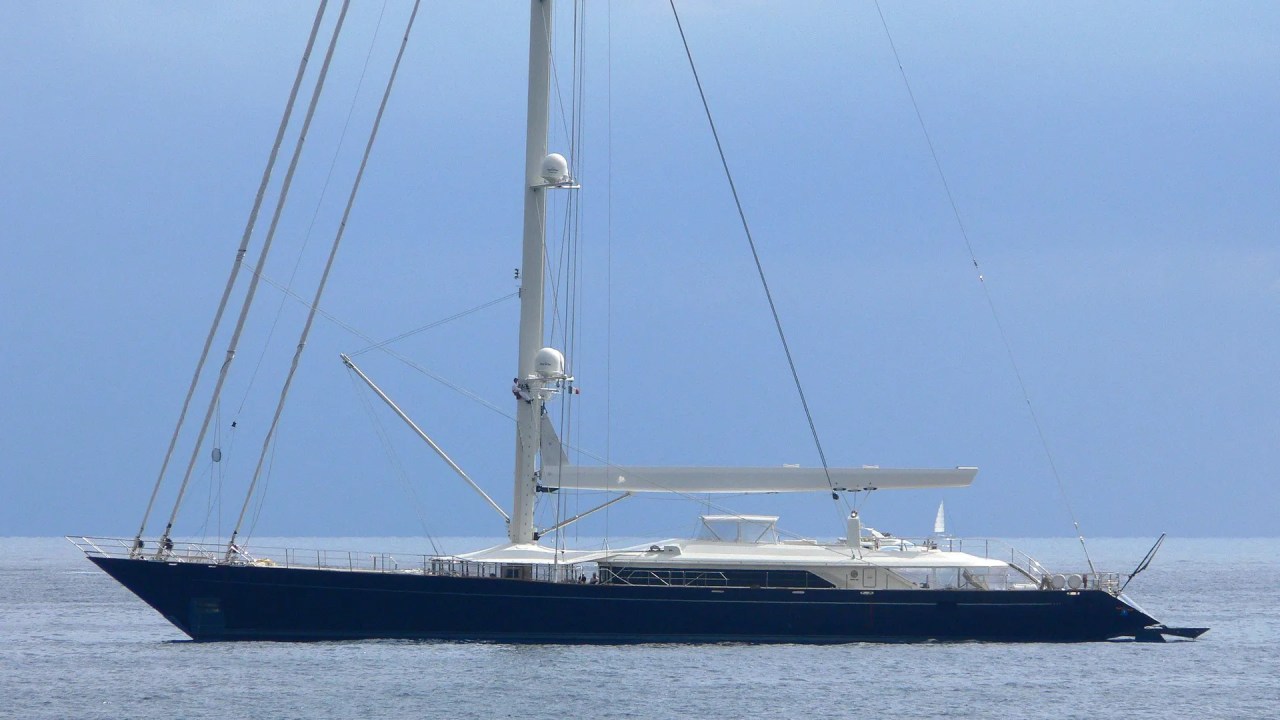Scylla and Charybdis are said to have sat off the Sicilian coast, where Mike Lynch’s boat foundered, and where 3,200 years before, Odysseus navigated between the monster and the whirlpool. Many think of the Med as a gentle sea, more like an oversized eternity pool, unbothered by the killer storms and cliff-high waves that rage beyond Gibraltar.
The howling wind had ripped along the coast, whisking the beach away overnight
I thought that, too, before I was bashed up by wild tempests in the two years I criss-crossed the Mediterranean in Odysseus’s wake. One morning, I turned up at a hotel on Mykonos. As I made my way to the breakfast table, the agitated maître d’ shimmered up and said, ‘I’m so sorry, sir, the beach has been washed away overnight. But – not to worry – it’s being rebuilt now.’
The howling wind I’d heard the night before had ripped along the coast, and all the sand had been whipped away by a freak southerly wind. By morning, the sea had turned a flat, milky blue. A quarter of a mile out, a dredger sucked up sand from the seabed and sent it back to the rocky foundations of the old beach via a huge, ribbed pipe. A whiff of briny sewage accompanied the freshly dredged sand.
Later that year, I came smack up against the meltemi – the northerly wind that blows across the Aegean now, when the hot air above the sea rises and cold air sweeps in from the north to replace it. (I was lecturing on a cruise ship at the time, the Corinthian, which was recreating Odysseus’s epic ten-year journey from Troy back home to Ithaca, before sailing on to Venice.)
We were hit in the afternoon as our ship headed north from Corfu into Croatian waters. Blowing at Force 7 for ten hours straight, the 35 mph wind rattled the cocktail glasses at pre-dinner drinks but failed to knock them over – hemmed in as they were by neat little fences on the zinc bar.
Only a few old salts could face dinner that night, laughing and drinking their way through the small hours, buoyed by mutual reassurances of bravery, while the rest of us took to our cabins. It didn’t do much for my stomach to see sick bags stuffed behind the banisters on every landing.
The hamlet of Scilla, on the big toe of the boot of Italy, is wrapped round the mountain on which the sea monster Scylla is said to have perched. The 240-foot-tall rock shoots up in the air from the flat coastline, visible from the sea for miles around. It was even taller before its top section was sliced off in 1783 by an earthquake – another natural disaster to which the Mediterranean is prey (along with the volcanoes; Mounts Vesuvius and Etna are still bubbling away).
Odysseus’s lover, the witch Circe, had warned him to sail closer to Scylla. Yes, she said, six of your men will be gobbled up by a cannibalistic monster, but that’s better than losing the whole ship to Charybdis. I ignored Circe’s advice and, at dusk, took the ferry across the Strait of Messina to the city of the same name, the Sicilian settlement whose harbour is said to play host to Charybdis. In Messina Bay, there was no sign of the whirlpool, even though tidal currents of four knots have been reported here when the moon is really tugging away, according to multiple keen sailors who approached me after my book on Odysseus was published.
They told me earthquakes have shifted things around over the millennia. One said Charybdis is still there, now further along the Sicilian coast. The worst storm in the Odyssey happens in book five, when Odysseus is shipwrecked on Corfu’s western shore – not far from where I was blasted by the meltemi, aboard the Corinthian.
Angry old Poseidon spotted Odysseus, whipped up the sea with his triton, and recruited all the winds to give him a good battering. Odysseus had to strip off his swanky clothes – a present from Calypso, his nymph mistress, on the island of Ogygia (said to be Gozo) – because they weighed him down. All the same, he was dashed upon the rocks, ripping his skin.
Poor Odysseus was left naked, stranded in the shoals, his flesh swollen and torn, water pouring from his mouth and nostrils. Homer wrote, ‘Hali gar dedmeto philon ker’; or, to use the George Chapman translation Keats admired in ‘On First Looking into Chapman’s Homer’, ‘The sea had soak’d his heart through.’








Comments